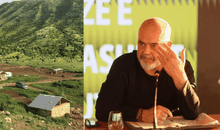
 Flash News
Flash News
Ceno Klosi with over 800 stolen votes, Balluku finds the reason is the tiredness of the counters
"Fast & Furious" in the former Block, police chase an Audi Q8, 4 cars collide
Car hits two tourists on a motorcycle in Fushe Arrëz, one of them dies
Serious accident in Thumanë, one dead, 3 injured
Durrës Court suspends the director of Pre-University Education from duty
Kosovo against solutions with Serbia that affect the territories

For the Government of Kosovo, the exchange of territories with Serbia, as an opportunity to resolve disputes, should not be discussed.
She says that she was and is against such an idea.
"The Government of Kosovo rejects projects and solutions with a territorial character", says spokesman Përparim Kryeziu for Radio Free Europe.
The idea was revived last week, when the candidate for European Union Enlargement Commissioner, Marta Kos, declared against it.
"The European Commission and I, if confirmed, will not follow these trends," Kos said at a hearing in the European Parliament.
That same week, the former Republican president, Donald Trump, won the presidential elections in the USA, who will take office from January next year.
In the first Trump administration, from 2017 to 2021, there were some officials, such as the then national security adviser, John Bolton, who did not rule out the option of "territorial corrections" between Kosovo and Serbia.
"We will not be an obstacle, and I don't think anyone in Europe will stand in the middle, if the two parties to the conflict reach a satisfactory agreement," Bolton said in August 2018.
That same month, even the then president of Kosovo, Hashim Thaçi, revealed his idea for correcting the borders with Serbia at a forum in Austria.
Similarly, the president of Serbia, Aleksandar Vučić, has spoken about the division between Serbs and Albanians.
Although no one has offered concrete proposals, it has been rumored that the north of Kosovo, inhabited by a majority of Serbs, should be exchanged with the south of Serbia, where the Albanian population lives.
These ideas, both in Kosovo and in Serbia, have met with reactions for and against.
Even Kosovo's main allies in Europe, Britain and Germany, have said that calls for changing the borders of the Balkans could bring destabilization.
This is the attitude of the Government of Kosovo today, which says that the eventual attempt to divide Kosovo, under the guise of territorial exchange, "is not a peaceful project and ignites a wide and long conflict in the Balkans".
"Just speculation"
For James Ker-Lindsayn, a professor at the London School of Economics, the mention of the idea of exchanging territories now is based only on speculation and nothing concrete.
"This was on the agenda earlier [in the first Trump administration]. I think there is no excuse that something is being said [about this topic]," Ker-Lindsay tells Radio Free Europe.
"I think a lot will depend on who will be in charge of his foreign policy team and whether they will be interested in the Balkans," he adds.
Trump, according to him, is interested "only where he thinks he can reach agreements that can make him look good."
"And if he thinks that the Balkans don't offer him something like that and he doesn't have anyone around to tell him that we can do something in the Balkans, he won't worry," says Ker-Lindsay.
Aleksandar Popov, head of the non-governmental Center for Regionalism in Novi Sad, Serbia, says he does not know who is now initiating the idea of exchanging territories.
He says that it would suit Vucic to return this idea to the discussion, but, according to him, it no longer coincides with the reality on the ground.
"A lot has changed. The government of Kosovo has managed to completely extinguish the Serbian institutions that functioned there - except for health and education. So I think that idea is dead. Anyone from the USA, from its administration, who analyzes this situation, will understand that, first of all, Pristina will not accept it", says Popov.
Radio Free Europe contacted the Presidency and Government of Serbia to request comments about these ideas, but received no response from either institution.
David Kanin, professor of European Studies at Johns Hopkins University in Washington, says that the likelihood of returning the idea of exchanging territories to something concrete, for now, is small.
"The exchange of territories will not return in the same way as before, because the actors have changed - at least one of them. The agreement was discussed in the context of a reconciliation between Thaçi and Vuçic, who trusted each other", says Kanin, alluding to the statements of Thaçi and Vuçic in 2018.
According to Kanini, between the current prime minister of Kosovo, Albin Kurti, and Vucic, there is no such cooperation.
Kosovo and Serbia, with the mediation of the EU, are in negotiations for the normalization of relations since 2011.
They have reached dozens of agreements, but many of them remain unimplemented and for this the parties blame each other for lack of commitment.
Kurti and Vucic have not met since September 2023.
The EU, on the other hand, has informed them that their path towards European integration depends exclusively on the normalization of relations.
The candidate for the head of the EU's foreign policy, Kaja Kallas, said on Tuesday that "the Western Balkans is a very important region" and that she will work to make the enlargement of the EU a reality./REL
Latest news





Lufta në Gaza/ Pse Netanyahu do vetëm një armëpushim 60-ditor, jo të përhershëm?
2025-07-02 21:56:08
US suspends some military aid to Ukraine
2025-07-02 21:40:55



Methadone shortage, users return to heroin: We steal to buy it
2025-07-02 20:57:35
Government enters oil market, Rama: New price for consumers
2025-07-02 20:43:30
WHO calls for 50% price hike for tobacco, alcohol and sugary drinks
2025-07-02 20:41:53







Israel agrees to 60-day ceasefire in Gaza, but many unanswered questions remain
2025-07-02 18:35:27
The weather in Germany is going "crazy", temperatures reach 40°C
2025-07-02 18:22:21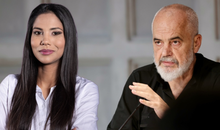

"Fast & Furious" in the former Block, police chase an Audi Q8, 4 cars collide
2025-07-02 17:59:25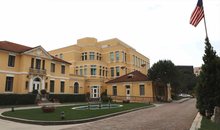
"Birth on a tourist visa? US Embassy warns Albanians: This is prohibited!"
2025-07-02 17:48:16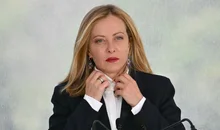
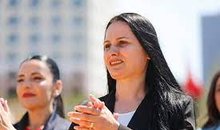

BIRN: Fier recount reveals vote trafficking within open political party lists
2025-07-02 16:57:19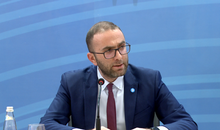

CEO and former director of 'Bankers Petroleum' arrested in Fier
2025-07-02 16:40:42
Car hits two tourists on a motorcycle in Fushe Arrëz, one of them dies
2025-07-02 16:33:23



Fire at the Elbasan Incinerator Landfill, Prosecution Launches Investigations
2025-07-02 15:34:54
What you need to know if you travel to a country with active volcanoes
2025-07-02 15:33:03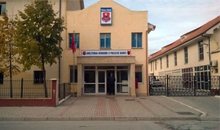

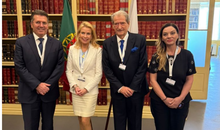

EU proposes 90% reduction in greenhouse gases by 2040
2025-07-02 14:50:23
Europe is burning from the heat / Italy and France are on maximum alert
2025-07-02 14:36:52
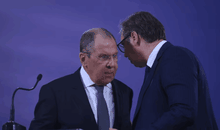
Moscow's contradictory statements: Is the friendship with Vučić breaking down?
2025-07-02 14:21:05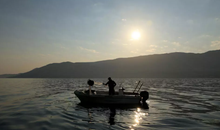
'I lost my battle': Sea warming is killing fishing in Albania
2025-07-02 14:08:35
Sekretet kimike që ndihmojnë në mbajtjen e mjaltit të freskët për kaq gjatë
2025-07-02 14:01:26
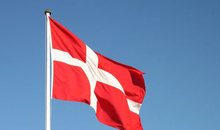
Denmark makes historic decision to make military service mandatory for women
2025-07-02 13:44:33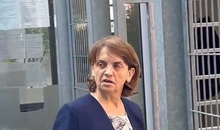
The appeal of the GJKKO leaves former judge Pajtime Fetahu in prison
2025-07-02 13:30:20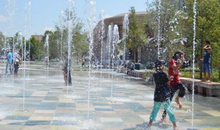
Productivity losses could reduce GDP by 1.3% as a result of extreme heat
2025-07-02 13:21:04
He abused his minor daughter, Zamir Meta is left in prison
2025-07-02 13:04:04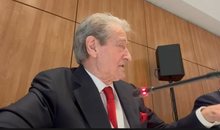

Waste burning in Elbasan, Alizoti: They are poisoning people and stealing money
2025-07-02 12:48:39
Civil disobedience continues in Serbia, dozens of people detained
2025-07-02 12:40:32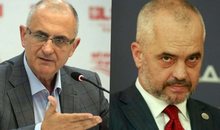
Rama's government was born under the sign of garbage and will end like this
2025-07-02 12:28:09
Water prices increase in the municipalities of the Elbasan region
2025-07-02 12:13:38
Civil disobedience continues in Serbia, what is happening in Belgrade?
2025-07-02 12:07:44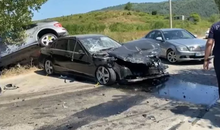
Serious accident in Thumanë, one dead, 3 injured
2025-07-02 11:54:42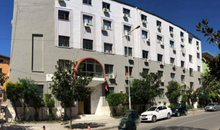
Durrës Court suspends the director of Pre-University Education from duty
2025-07-02 11:49:27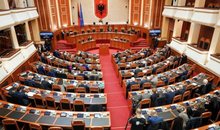
Plenary session on Thursday, what is expected to be discussed
2025-07-02 11:36:43
Europe is burning from heat waves/ What is the 'thermal dome' phenomenon?
2025-07-02 11:26:25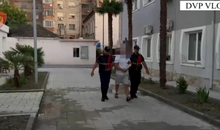
Wanted by Italy for murder, 45-year-old arrested in Vlora
2025-07-02 11:19:31
Fire situation, 28 fires reported in 24 hours, 2 still active
2025-07-02 11:13:20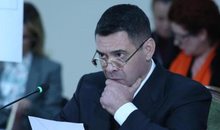
"Buka" file, preliminary hearing for Ahmetaj postponed to July 17
2025-07-02 11:03:30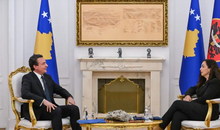


Baçi: Belinda Balluku and Ceno Klosi, the most dangerous "gangs" in Fier
2025-07-02 10:32:09
Zamir Meta, suspected of sexually abusing his daughter, arrives in court
2025-07-02 10:21:33
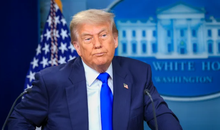
Trump: Israel has agreed to a 60-day ceasefire in Gaza
2025-07-02 10:01:55
Fire continues at Elbasan landfill
2025-07-02 09:51:13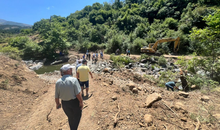

Dates to note during July, important events will occur
2025-07-02 09:31:45
The hearing for Jorgo Goro's claim is postponed
2025-07-02 09:24:19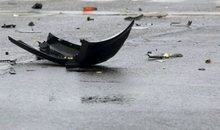

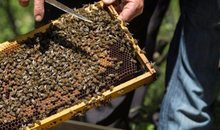

Foreign exchange, the rate at which foreign currencies are sold and bought
2025-07-02 08:42:31

52% of pensioners did not receive full pension in 2024
2025-07-02 08:27:18
Horoscope, what do the stars have in store for you today?
2025-07-02 08:13:36
Hot weather, Wednesday brings high temperatures
2025-07-02 07:59:16
Morning Post/ In 2 lines: What mattered yesterday in Albania
2025-07-02 07:46:15
Heatwave sweeps across Europe, Spain and England record hottest June ever
2025-07-01 22:57:41






Golem and Qerret without water at the peak of the tourist season
2025-07-01 21:09:32

Euractiv: Italy-Albania migrant deal faces biggest legal challenge yet
2025-07-01 20:53:38
BIRN: Brataj and Fevziu victims of a 'deepfake' on Facebook
2025-07-01 20:44:00

Vlora by-pass, work delays and cost increases
2025-07-01 20:24:29



Milan are expected to give up on the transfer of Granit Xhaka
2025-07-01 19:41:25

